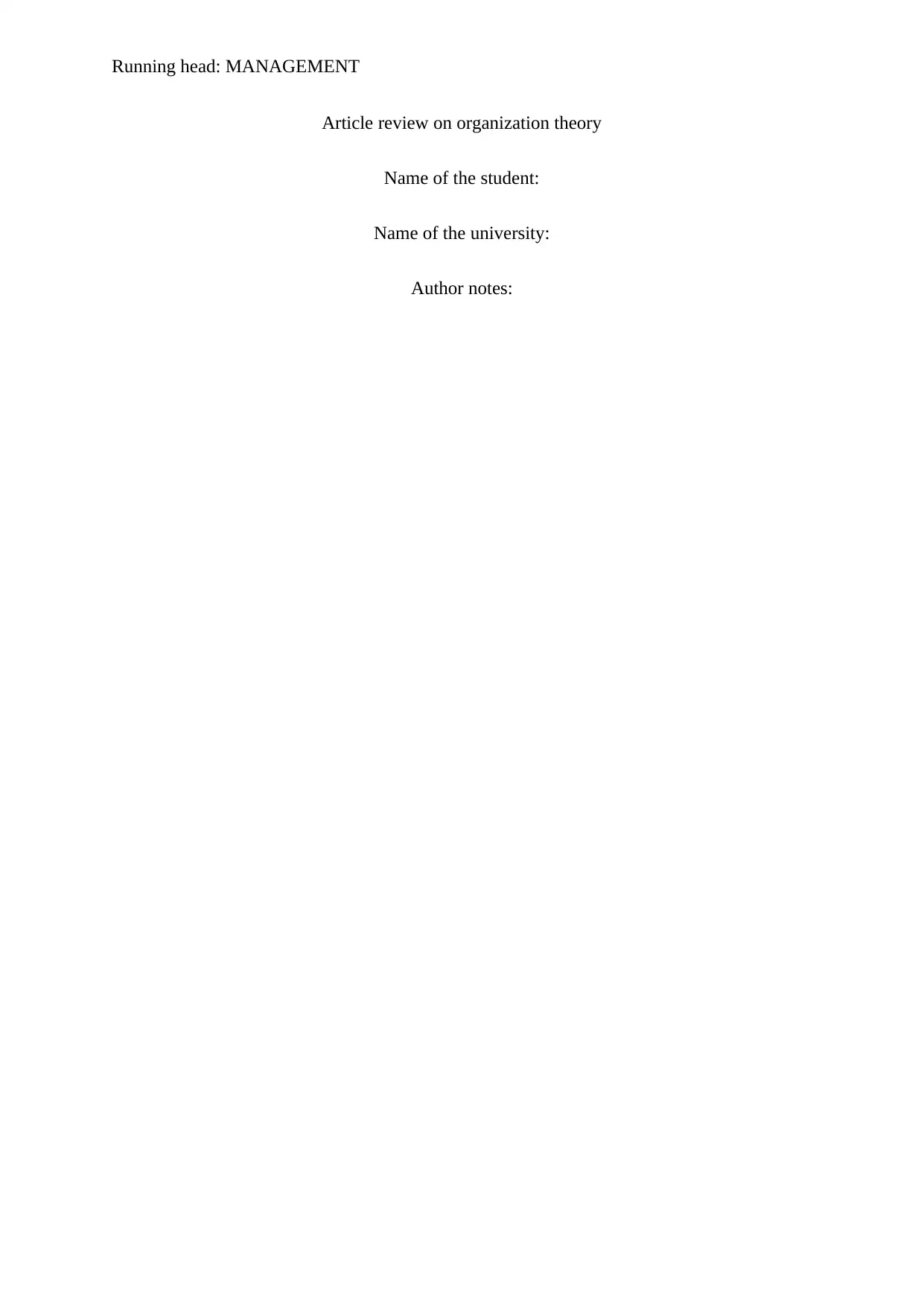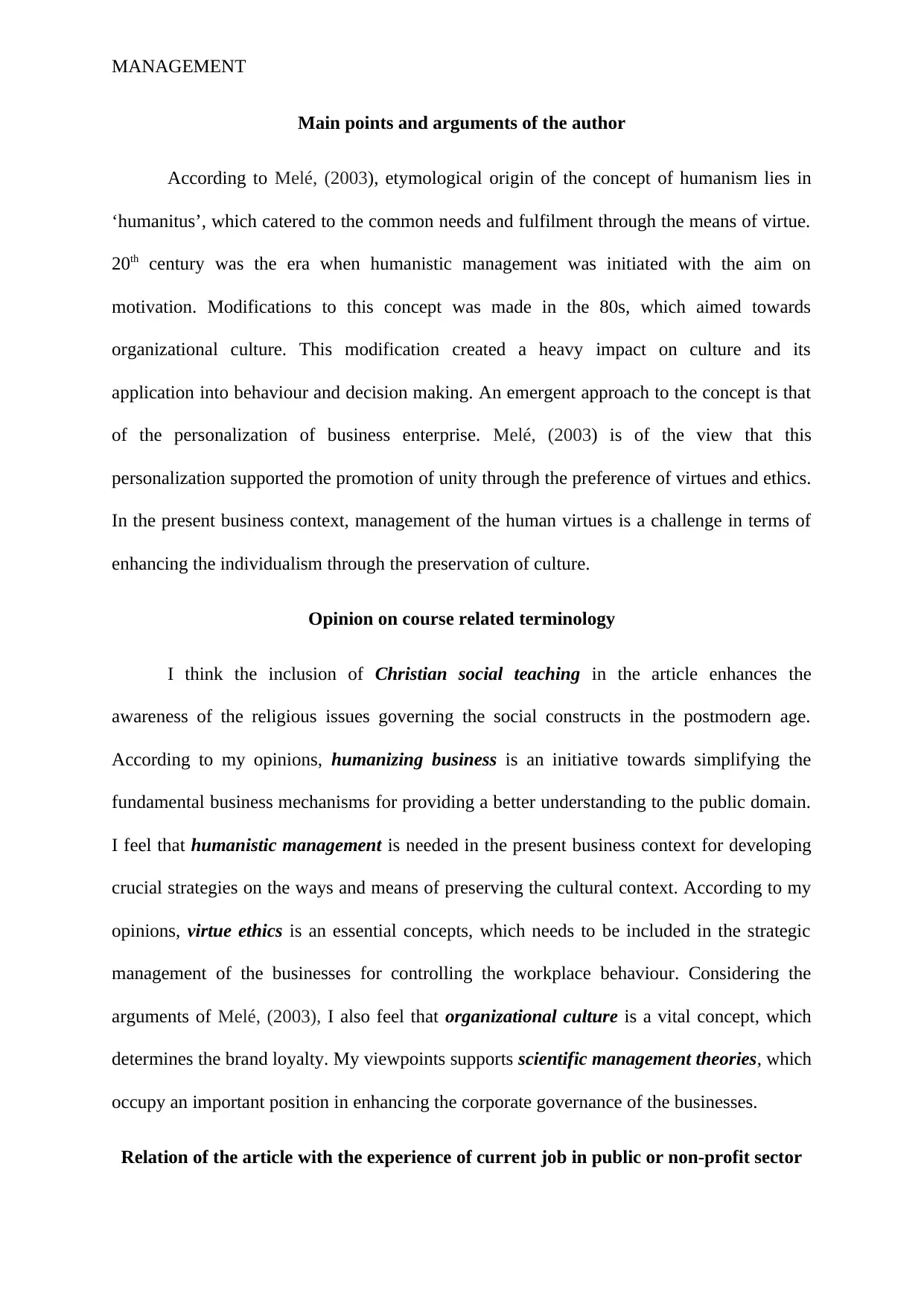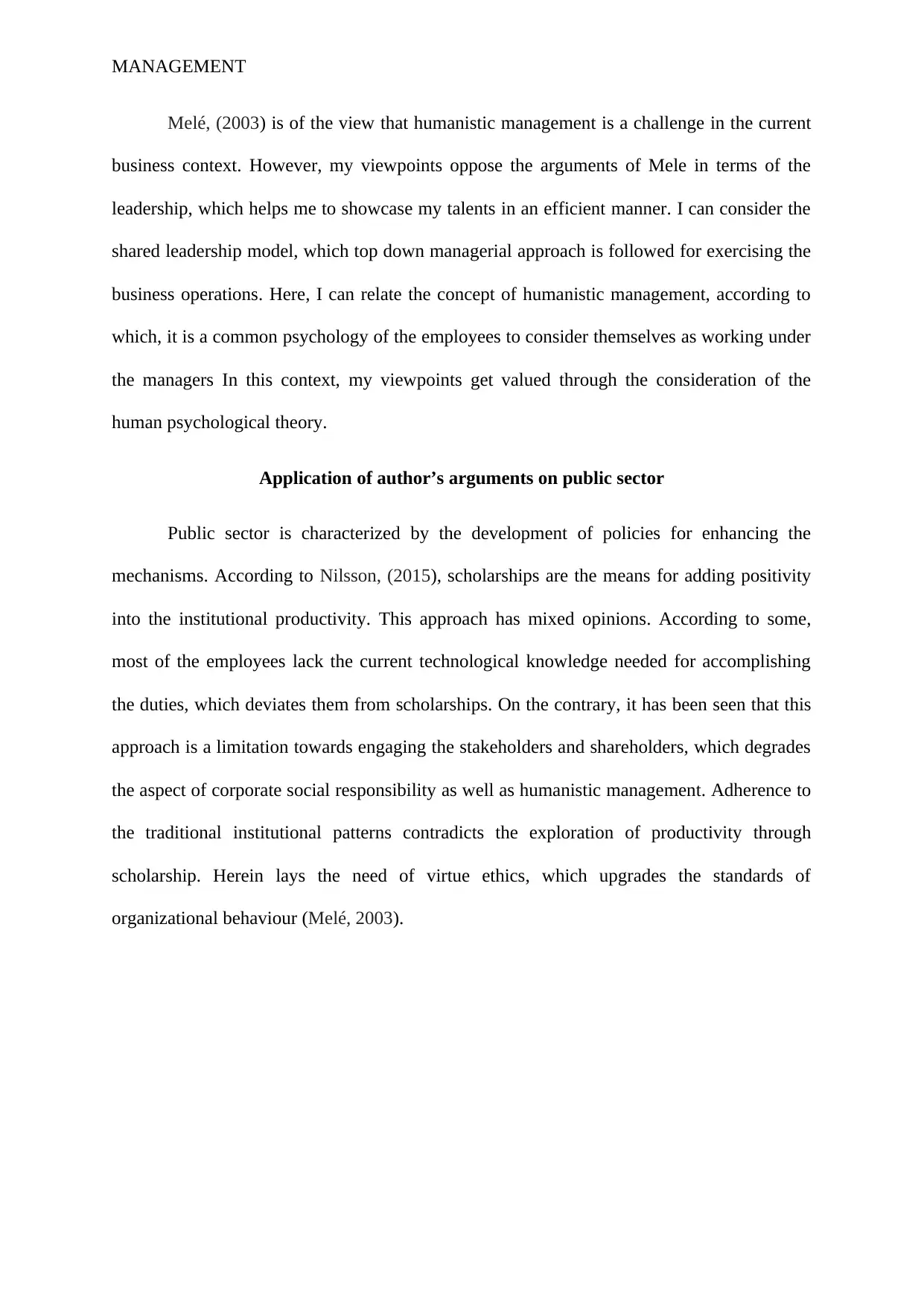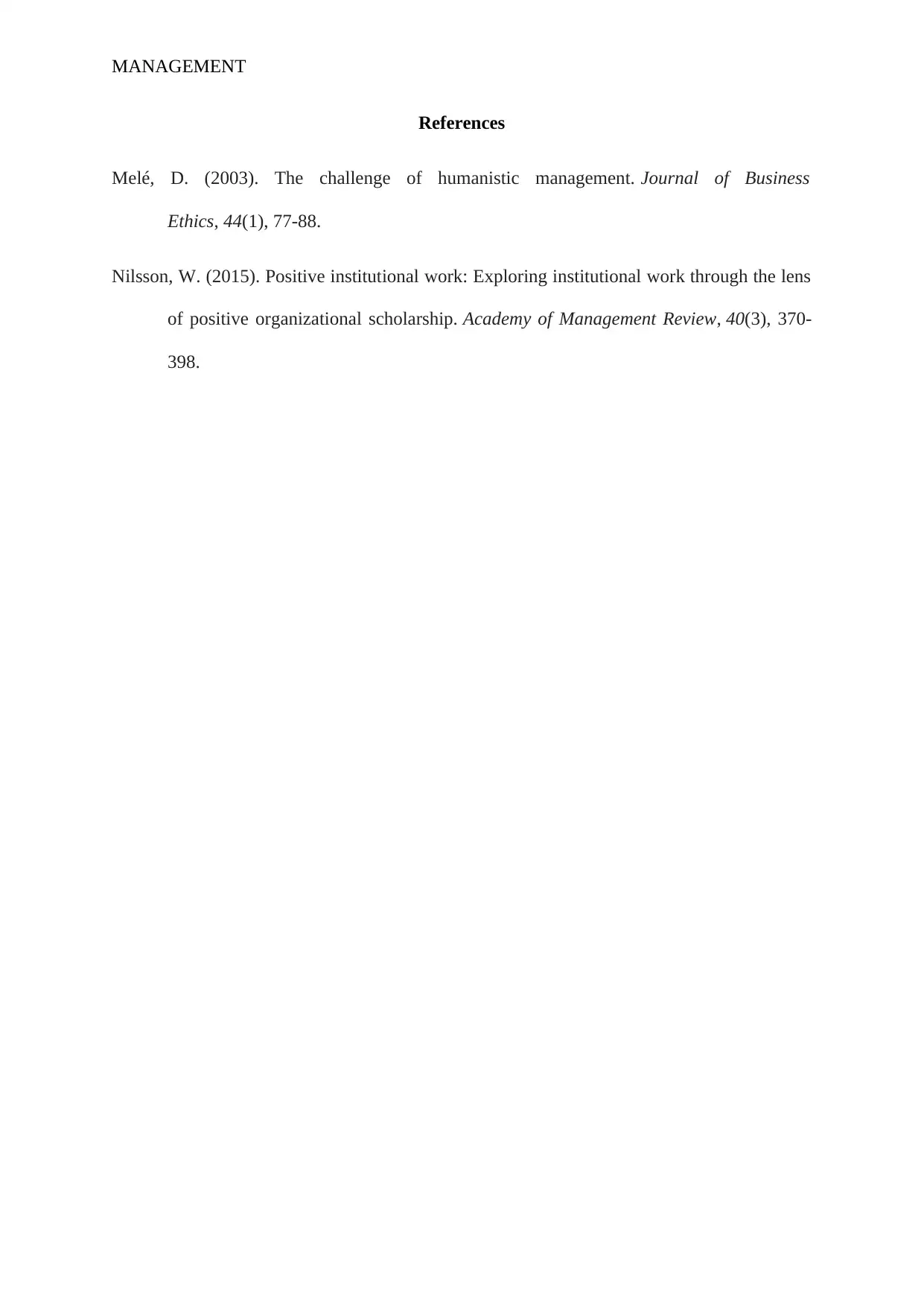Article Review: Humanistic Management, Leadership, and Ethics
VerifiedAdded on 2022/11/10
|4
|679
|315
Report
AI Summary
This assignment is an article review that examines the concept of humanistic management, exploring its etymological origins and its evolution from a focus on motivation to an emphasis on organizational culture and business ethics. The review discusses the importance of virtue ethics and the challenges of balancing individualism with cultural preservation in the modern business context. The author reflects on the relevance of these concepts to their current job, highlighting the application of humanistic management principles in leadership and the shared leadership model. Furthermore, the review extends to the public sector, analyzing the impact of scholarships on institutional productivity and the need for virtue ethics to enhance organizational behavior, as supported by cited references. The author critiques the viewpoints of the referenced authors while also providing their own opinions and insights on the topics covered in the article.
1 out of 4










![[object Object]](/_next/static/media/star-bottom.7253800d.svg)